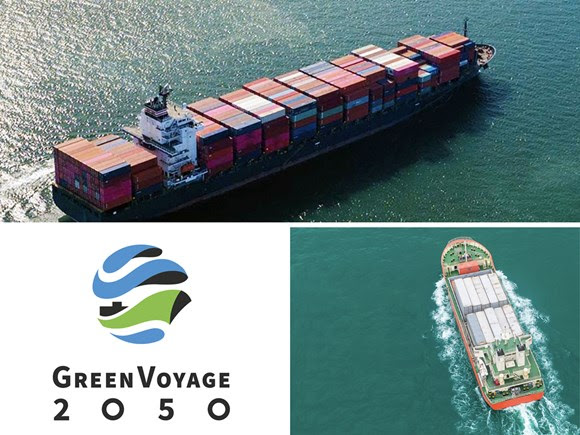Description

Copyright infringement not intended
Picture Courtesy: fathom.world
Context: India has been chosen as the pioneering country for the International Maritime Organization (IMO) Green Voyage2050 Project, a significant initiative aimed at assisting developing nations in reducing greenhouse gas (GHG) emissions from ships. This project marks a crucial step towards a cleaner and more sustainable future for the maritime transportation sector.
Details
- This announcement showcases India's significant role in combating greenhouse gas emissions within the maritime industry, especially through its involvement in the International Maritime Organization (IMO) Green Voyage2050 Project.
About Green Voyage2050 Project
- The primary aim of this project is to assist developing nations in reducing greenhouse gas (GHG) emissions specifically from ships.
- India, as a signatory to the International Convention for the Prevention of Pollution from Ships (MARPOL), has implemented its regulations concerning carbon emissions on Indian ships. These regulations emphasize enhanced energy efficiency and yearly carbon intensity reduction.

National Centre of Excellence for Green Ports and Shipping (NCoEGPS)
- India has set up its first NCoEGPS to provide policy, regulatory support, and technology adoption for Green Shipping, aimed at achieving carbon neutrality and promoting a circular economy in the shipping sector.
- The centre involves collaborations between the Ministry of Ports, Shipping and Waterways, port authorities, Cochin Shipyard Limited, and The Energy & Resources Institute (TERI).
Measures for Ships Not Meeting Carbon Intensity Reduction
- This initiative allows Indian ships to use sustainable biofuels and blends as a cost-effective option.
- A digital system is operational to monitor fuel consumption during various ship operations, ensuring efficient utilization.
Key Takeaways
- India's involvement in such projects demonstrates collaboration among various stakeholders, including public and private entities, to tackle maritime emissions.
- The establishment of the NCoEGPS indicates a commitment to shaping policies and regulations conducive to greener maritime practices.
- Initiatives like waste heat recovery systems, electric hybrid tugs, and biofuel usage showcase the country's focus on adopting and promoting innovative technologies for sustainable shipping.

Conclusion
- India's selection as a lead country for this project underscores its commitment to addressing climate change within the maritime industry and promoting sustainable practices on a global scale.
Must Read Articles:
International Maritime Organisation (IMO): https://www.iasgyan.in/daily-current-affairs/international-maritime-organisation-imo
|
PRACTICE QUESTION
Q. In the context of maritime pollution, discuss the major sources, impacts, and global initiatives aimed at mitigating the environmental challenges posed by activities in the maritime sector. How can international collaboration and regulatory frameworks contribute to a sustainable and cleaner maritime environment?
|















